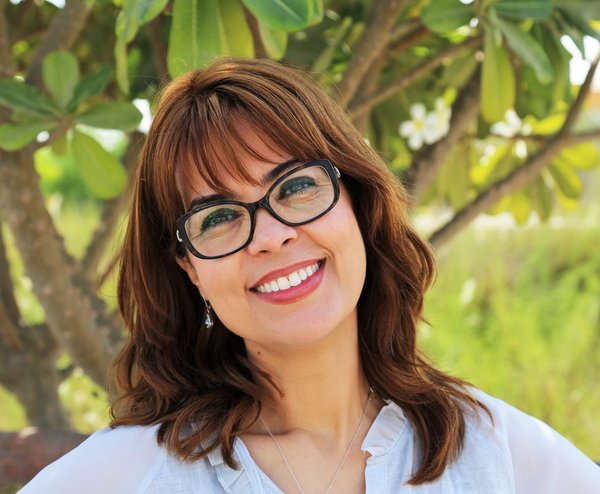 Download this article in magazine layout
Download this article in magazine layout
- Share this article
- Subscribe to our newsletter
"We must mobilise all available resources"
Our world today is in the grip of a climate crisis. So grave it is that it is listed as one of the several existential risks to humanity. Climate change is slowly taking a toll on communities, ecosystems and economies. And its costs are rising. The nations least prepared for climate-induced effects are, unfortunately, the most vulnerable.
Against this backdrop, population growth and resource depletion are worrying. As the global population is forecast to hit 9.7 billion by 2050, demand for food and water will soar. The problem here is that climate change will considerably impact agriculture, among many other sectors, putting the global food systems at serious risk. Several studies warn of future and in some cases current declines in yields of staple crops such as wheat, rice and maize due to climate change and other factors.
But climate change is not the only problem. Global food production is also threatened by water scarcity, as well as water and soil salinisation. Farming inconveniently accounts for around 70 per cent of the world’s water withdrawals. Yet about four billion people face water shortages at least one month a year. And around half a billion do not have enough water all year round.
Our research to date shows that alternative crops and water resources hold a lot of promise in marginal environments.
This problem is more pronounced in water-stressed regions like the Middle East and North Africa. To make up for the freshwater deficit, many countries depend on desalination, which leads to another problem: reject brine. Scientists reckon desalination plants around the world produce 95 million cubic metres of freshwater per day, often at a heavy environmental price. Some 142 million cubic metres of reject brine is discharged every day, mostly back into the environment.
Soil salinisation is a major constraint on agriculture, too. Every day since the early 1990s, an average of 2,000 hectares of irrigated land in arid and semi-arid areas in 75 countries has been degraded by salt. By one estimate, the global annual cost of salt-induced land degradation stands at 27.3 billion US dollars because of lost crop production only.
These problems raise questions about whether traditional agricultural approaches and crops are fit for purpose in marginal environments. As arable land and freshwater resources are in short supply, it is more important than ever before to make the most of every type of land and water to meet future food demand. Decades of research show that saline water, as well as other types of non-fresh water, can be efficiently used for food, feed and biofuel production. While alternative crops like quinoa, sorghum, pearl millet and Salicornia cope well with heat, salinity and drought, treated wastewater, saline water and seawater could be viable options for irrigated agriculture.
More diversity needed
Our global food system is currently too dependent on just a small number of major crops like rice, wheat and maize, which are neither resilient nor nutritious enough. As a result, our diets are not adequately rich. A mere 15 crops provide 90 per cent of our food energy intake, of which two-thirds comes from only rice, wheat and maize. This needs to change, as it is neither good for our health nor sustainable for our planet.
There are around 30,000 known edible plant species in the world. More than 6,000 crops have been cultivated for food throughout human history, but fewer than 200 species have any significant production levels globally. Our food systems and diets across the international market unfortunately do not reflect the diversity on our planet.
For more than two decades, the International Center for Biosaline Agriculture (ICBA) has been working on alternative crops and technologies that help to produce more food, save more resources and protect the environment. Our centre has developed and tested a wide range of solutions suited to changing realities in different regions. Our scientists have introduced crops like quinoa, pearl millet, sorghum and Salicornia, among others, in countries in Central Asia, the Middle East and North Africa.
ICBA has also conducted applied research on treated wastewater, saline water and seawater irrigation. Our scientists have, for example, run long-term experiments on the effects of irrigating vegetables such as carrots, lettuce, eggplant and tomato, as well as landscaping plants and date palms, with treated wastewater. Results indicate that treated wastewater is a good alternative to freshwater resources when it comes to agriculture and landscaping under arid conditions.
Integrated approaches put to the test
Since 2013, our centre has operated inland and coastal modular farms to study the use of reject brine and seawater. The inland modular farm uses desalinated water for vegetables, reject brine for fish, and aquaculture effluents for halophytic plants, while the coastal modular farm uses seawater for fish and aquaculture effluents for halophytic plants.
We should consider options that have received little attention so far, especially in parts of the world that suffer from lack of water, poor soil and drought. First, alternative crops should come to the fore in areas where major crops produce little or fail. This will boost agricultural productivity and rural livelihoods. Second, it is important to make better use of brackish water, treated wastewater, reject brine and seawater for farming purposes in countries where freshwater resources are scarce. This will help to reduce pressure on freshwater resources. Third, it is crucial that research and development continues to identify and test crops and technologies best suited to marginal environments to ensure future food, nutrition and water security and to develop new food systems that are better adapted to today’s and tomorrow’s climates.
If we want to achieve the ambitious targets of the Sustainable Development Goals, we must mobilise all available resources.
Contact: I.elouafi(at)biosaline.org.ae





Add a comment
Be the First to Comment